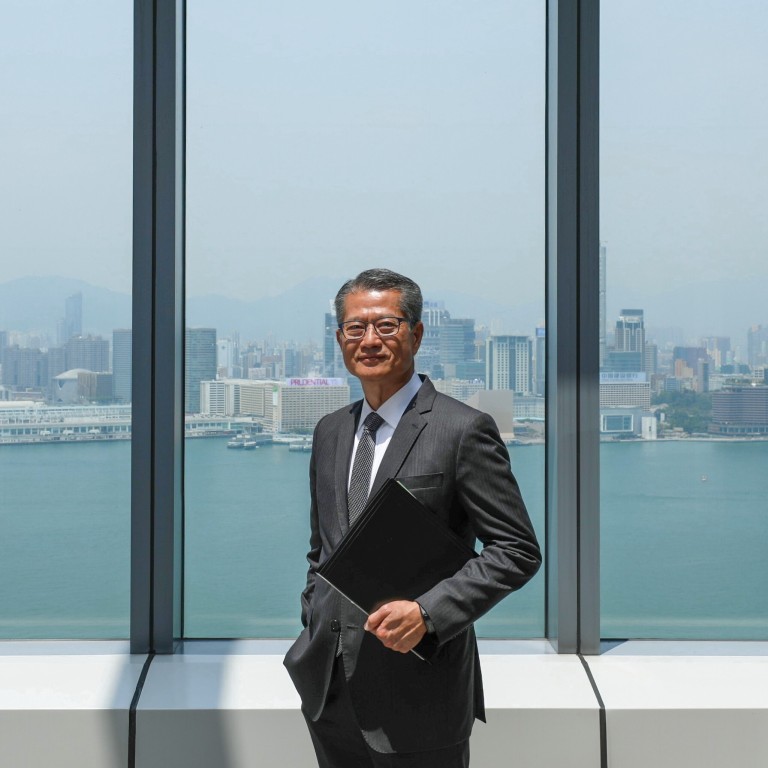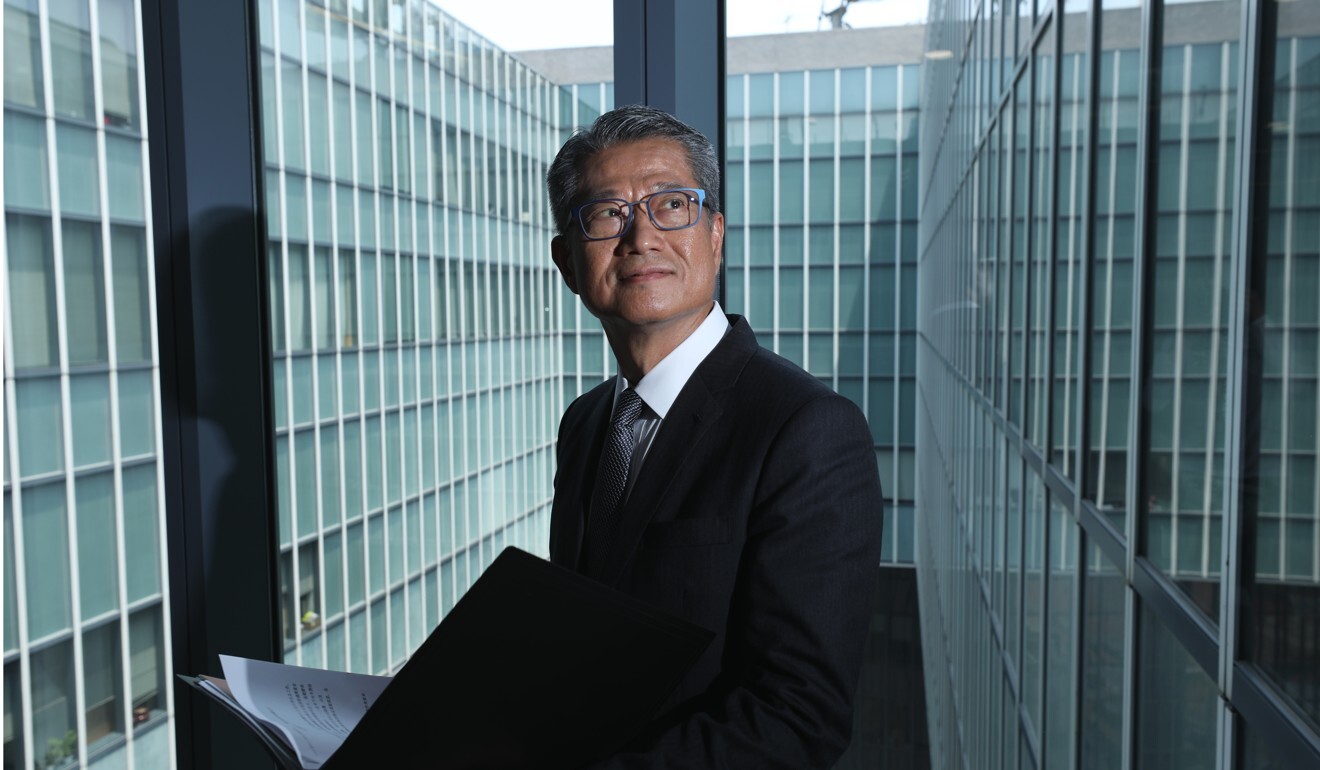
Hong Kong facing threat of worst recession ever, finance chief Paul Chan warns, as he predicts coronavirus will have ‘long-lasting’ impact
- Paul Chan says economy could shrink by between 4 and 7 per cent, with recession worse than during global economic tsunami or Asian financial crisis
- Financial secretary urges lawmakers to pass his budget and calls on people to resolve their differences
If the economy declines at the conservative end of the government’s range – 4 per cent – it would be the worst performance since 1998, when GDP shrank 5.9 per cent. Since the handover, there have only been three annual economic contractions, in 1998, 2009 (2.5 per cent) and 2019.
Scientists to identify Hong Kong’s ‘invisible’ coronavirus carriers
Chan said many signs pointed to a sharp decline in GDP in the first quarter, with the preliminary figure due on Monday.
“It is worrying,” he said, noting the city’s key industries – trade, retail and investment – had come to a standstill.
Hong Kong had no new Covid-19 case to report for the sixth time in 10 days on Wednesday, raising hopes of a sustained turnaround in its battle against the contagion, but the impact of the global lockdown has been building up for months.
Exports were down 9.7 per cent in the first quarter, while retail sales tumbled 34 per cent year on year in the first two months of 2020. Tourist arrivals went into free fall in March, slumping 99 per cent year on year, after a 96 per cent plunge in February.
Unemployment surged to 4.2 per cent in the January to March period, the highest rate in nine years, rising 0.5 percentage points compared with the three months to February. Joblessness in the retail, hospitality, and food and beverage sectors hit 6.8 per cent, a peak not seen since the depths of the global financial crisis.
“Employees are having pay cuts, taking unpaid leave or being laid off in many industries,” Chan said.
The International Monetary Fund earlier this month downgraded its forecasts for global economic growth and Hong Kong’s GDP this year. It predicted a 4.8 per cent decline in the city’s economy, down from the 0.2 per cent growth it forecast last December.

Bank of East Asia chief economist Paul Tang Sai-on estimated Hong Kong’s economy would shrink 3.3 per cent this year.
“The government’s forecast is relatively pessimistic,” he said. “We have never seen a situation like this before, and want to know what the recovery path will be – whether it is a U-shape, an L-shape, or a V-shape.”
Chan noted the HK$290 billion worth of anti-epidemic relief measures rolled out by the government amounted to 9.5 per cent of the city’s GDP.
“Together with the relief measures [to mitigate damage from the] social unrest late last year, the measures overall will cushion 5 percentage points in GDP,” he said.
The measures – which include subsidising wages and struggling industries – aim to ease the burden on companies and individuals, and save jobs.
Chan said Hong Kong’s fiscal reserves of more than HK$1.1 trillion had dropped to about HK$900 billion because of the relief measures.
“The fiscal reserves do not exist for the purpose of saving up more money, it is accumulated to stabilise Hong Kong’s economy and livelihood,” Chan said, adding that current reserves would be enough for 14 months of government operations.
If the violent clashes … from the second half of last year resurface, it will definitely lead to more shops closing and foreign capital not daring to invest and do business in Hong Kong
With a revival of anti-government protests as the coronavirus crisis appeared to be easing, Chan warned that social stability was key to the city’s economic recovery.
“If the violent clashes … from the second half of last year resurface, it will definitely lead to more shops closing and foreign capital not daring to invest and do business in Hong Kong,” Chan said.
Six things to know about the Hong Kong budget
The finance chief said it would take time to resolve Hong Kong’s deep-rooted issues and called for unity in times of economic recession.
“Again I urge people to put aside their differences and make room to resolve conflicts,” he said.
After Chan spoke, lawmakers passed the second reading of the government’s Appropriation Bill, which contains measures announced in the budget.
While 41 pro-government legislators backed the bill, 21 from the opposition camp voted against it.
Pan-democrats earlier criticised the government for increasing the budget for the police force, whose popularity has dipped over its handling of last year’s civil unrest.
Wednesday’s vote brought the bill to the full-council stage, where lawmakers discuss possible amendments before a final vote.
Help us understand what you are interested in so that we can improve SCMP and provide a better experience for you. We would like to invite you to take this five-minute survey on how you engage with SCMP and the news.


